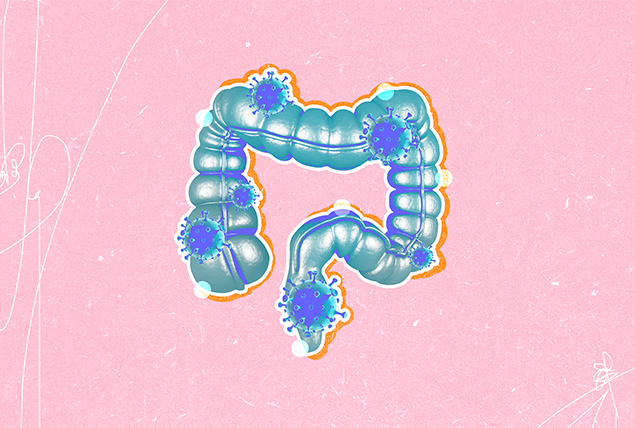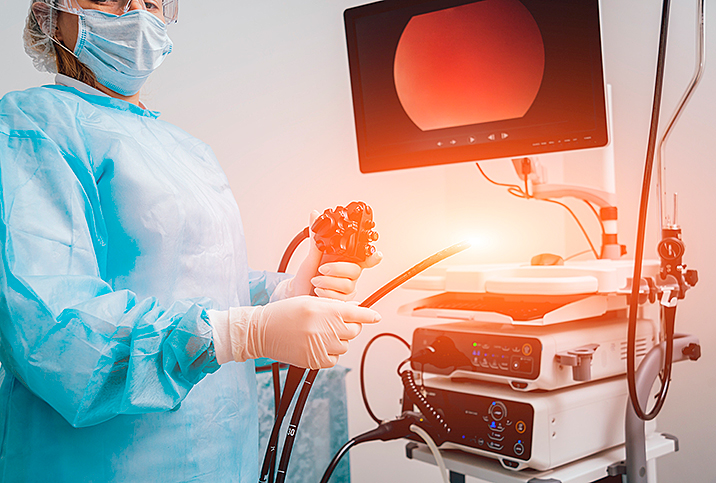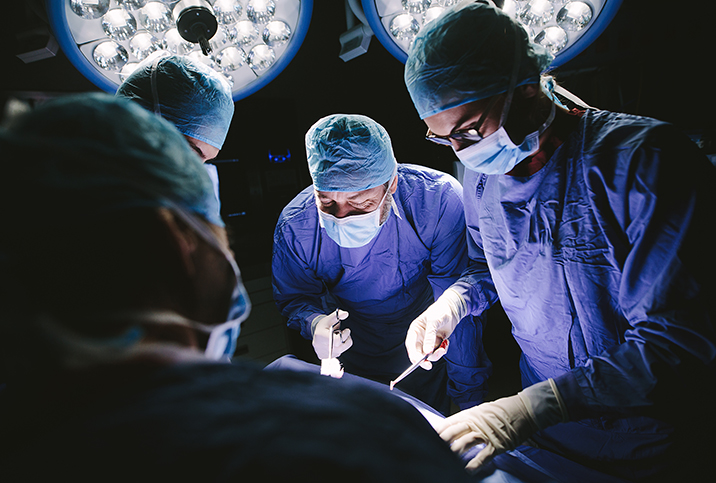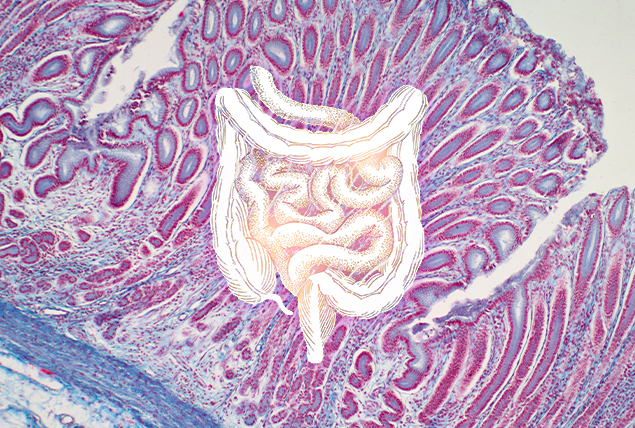Colorectal Cancer's Potential Effects on Sexual Health

As we learn more about colorectal cancer, it becomes clear that early detection and prevention through screening—such as with regular colonoscopy, sigmoidoscopy, fecal occult blood test, CT colonography or stool DNA test—at the appropriate age for a person's risk level is of paramount importance.
However, even the most persistent prevention regimen can never be perfect. Colorectal cancers still develop in some people.
Colorectal cancer is the name given to any cancer that develops in the colon (also known as the large intestine) or in the rectum. For both men and women, it is one of the deadliest and most common types of cancer.
Luckily, similar to how prevention and treatment have come a long way, so has post-cancer care. Life after treatment for colorectal cancer can be complicated, especially in regard to its effects on sexual function.
Living with colorectal cancer
Colorectal cancer is relatively common in the United States. An estimated 151,000 new cases were diagnosed in 2022 alone, according to the National Cancer Institute's SEER reporting database. That number represents 7.9 percent of all U.S. cancer cases.
Colorectal cancer remains the fourth-most common type of cancer, and about 52,000 colorectal cancer patients are estimated to have died in 2022.
Still, tremendous progress has been made in early diagnosis, prevention and treatment. The five-year relative survival rate for colorectal cancer is more than 65 percent, which means two-thirds of colorectal cancer survivors live at least five years after their diagnosis. That number jumps to 91 percent when the disease is detected early, in the localized stage.
While one death is too many, there is a great deal of hope for the future as these figures continue to improve.
Life after colorectal cancer
Every cancer is unique. With the input of a medical team and the patient, every cancer intervention can be uniquely crafted to fit that person's goals and healthcare needs.
Some stage 0 colorectal cancers require only the removal of a polyp. Some stage I cancers that are confined to a single polyp, are not high grade and have not spread to the margins of the polyp may require only endoscopic removal, a similar intervention to a colonoscopy.
Aside from those exceptions, treatment for colorectal cancer that hasn't spread to other organs almost always involves surgery.
Many stage I, II and III cancers require partial colectomy, the removal of at least part of the colon. This requires at least two to four days in the hospital and significant recovery time. The patient needs to ease back into eating solid food again, and it takes some time before they are able to lift anything heavy or exert themselves physically.
The good news is that if colorectal cancer is caught in its early stages, surgery alone may be curative. Later stages may require additional therapies, such as chemotherapy or radiation.
"Ideally, you want to catch these before they become cancer because you want to avoid surgery altogether," said Shahrad Hakimian, M.D., a gastroenterologist with UCLA Health in Los Angeles. "Or even if you end up diagnosing the cancer, you want to catch that as soon as you can to catch it at a lower stage. Even with lower-stage cancers, at stage I, surgery alone can be curative. At stages II and III, a combination of surgery and chemotherapy can be curative."
That's not to say someone is out of the woods after successful surgery. A big part of life after colorectal cancer treatment is knowing it may return. Recurrence, or a return of cancer, occurs in about 30 percent to 40 percent of colorectal cancer patients, usually within the first two years, according to a 2016 study.
Colostomy
Another consideration for life after colorectal cancer is the possibility the body may need help with processing food and defecation. The healthcare and scientific community has made great progress in treating colorectal cancer patients and giving them the best chance of living a normal life. Even so, the body's ability to digest food may be affected if a portion of the colon is removed. A colostomy may be necessary.
After the small intestine and stomach have already absorbed most of the useful nutrients from food that is consumed, the colon's purpose is to extract water and some electrolytes. What's left is passed along through the colon's muscular contractions until all that remains is mostly solid waste destined to be excreted through the rectum.
However, if the length of the colon is shortened significantly with a colectomy, the colon's ability to fully do its job may be impeded. In such cases, a stoma—a surgically created opening to the colon—may be necessary to allow waste to be passed out of the body and into a bag.
As drastic as a stoma and the attached colostomy bag sounds, there are two points to consider:
- Great progress has been made in streamlining the function of these interventions.
- It sure beats the alternative: death due to untreated colon cancer.
"There's a lot of advances in nursing and the type of bags they use and so forth," said Niket Sonpal, M.D., an internist and a gastroenterologist with Touro University in New York City. "People can live a really normal quality of life with a stoma. There are so many underlying variables; it really depends on the situation."
Colorectal cancer and sexual health
A number of factors influence your life and sexual health after colorectal cancer. These include physical as well as mental and emotional changes that may go along with colorectal cancer treatment.
Sexual stimulation is a complex, multifaceted process that involves a person's mental state as much as their physical one. Any kind of major changes to your body, such as those caused by colorectal surgery, may cause physical changes, in addition to insecurities and nervousness.
They can even lead to a preoccupation with the functioning of your body that was not present prior to surgery. A person may just not feel desirable for a while after dealing with colorectal cancer surgery.
That's where counseling for individuals and couples can make a real difference. It's important for someone who has undergone treatment for colorectal cancer to understand they are not alone in feeling this way and their medical team is likely well aware that these feelings can develop. Team members may well have therapists they can recommend on speed dial.
If you don't feel comfortable talking with your doctors about any lingering emotional insecurities, you should still talk with someone. Even if you don't have a regular therapist, talking can help, and telehealth is one way to find a healthcare professional. Giddy Telehealth can connect you with a therapist who will listen and evaluate your situation. Many of them offer same-day video visits.
As with everything else involving sex, talking with your partner and being open about your feelings is always a crucial first step. If you're just not feeling it at first, finding other paths to intimacy as you work through these issues together can be a big help.
Erectile function and colorectal cancer
Keep in mind, too, that colorectal cancer treatment can contribute to erectile dysfunction (ED). This condition can be a result of both the emotional/mental issues and radiation treatments that may be recommended to help fully eradicate cancer.
These treatments can damage vital nerves and blood vessels that are needed to get and maintain erections.
Communication with your healthcare team and your partner, and knowing this kind of ED isn't unprecedented and there is help for it, can go a long way toward overcoming any issues you might encounter.
Conclusions
If you do have to face colorectal cancer treatment, there's never been a more optimistic time to do so. Your chances of detecting it as a polyp before it even develops into cancer, not to mention your odds of recovery if it does, have never been better.
Regularly screening as soon as it's appropriate for your age and risk profile is essential. Colonoscopy is still the gold standard. Arguably, no single diagnostic and treatment combination has done more to prevent full-blown cancer.
"As we learn more about these diseases, patient outcomes are improving over time," Hakimian said. "There's more and more hope to get people a better quality of life and a more prolonged life, even if they're unfortunate enough to get cancer. So hope is not lost."


















